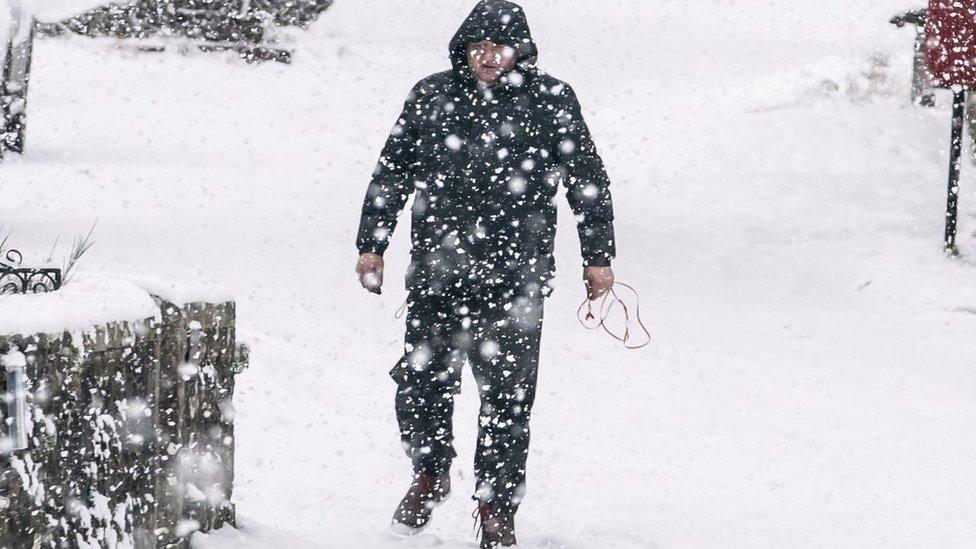Storm Arwen: The village future-proofing against power cuts
- Published
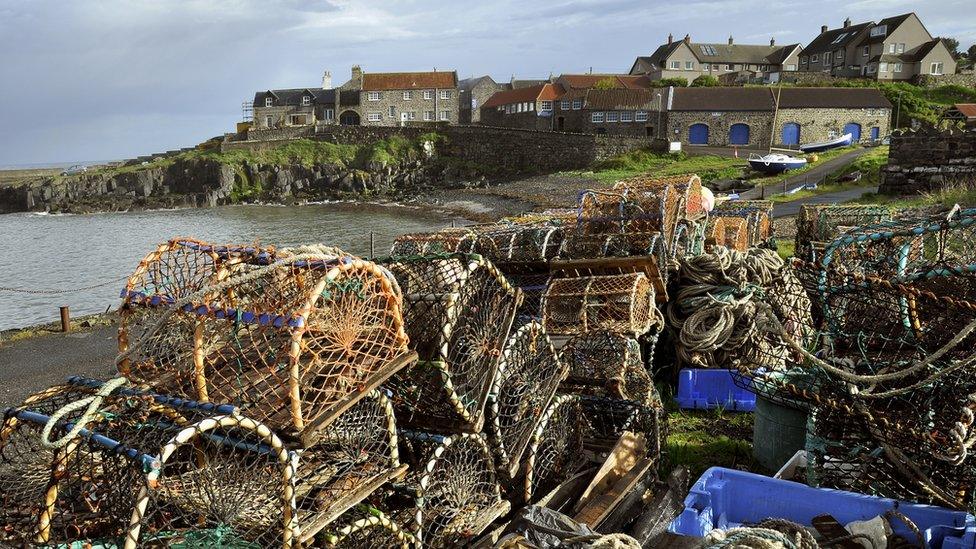
Craster is a small fishing village on the Northumberland coast
Hundreds of thousands of homes were left without power for days when Storm Arwen felled trees and power lines in November. Three months on, the BBC has been to one village to find out what people there are doing to protect against future power cuts.
With its old harbour, quaint cottages and imposing castle ruins nearby, Craster is an idyllic spot beloved by visitors.
But on 26 November, the Northumberland village was one of hundreds across north-east England plunged into darkness by Storm Arwen.
Winds of up to 98mph brought down countless trees and powerlines across the country with some communities remaining cut off from the electricity grid for more than a week.
Power cuts have happened before in Craster but never on that scale says Martin Smith, the chairman of the parish council.
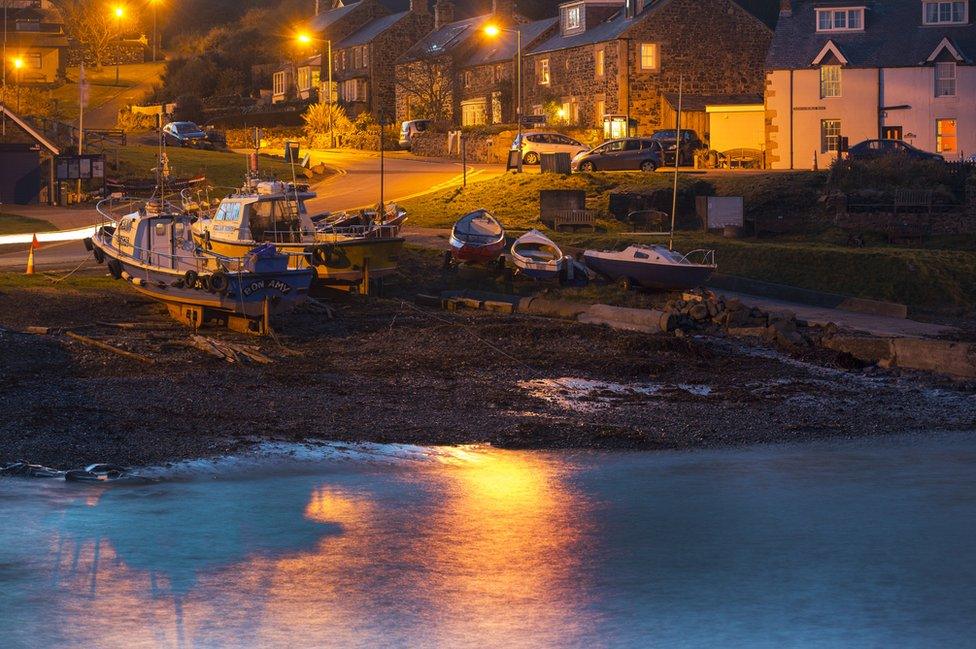
Craster Parish Council is planning to be able to at least keep some of the lights on in future power cuts
"We had no power for a couple of days," he says, although he acknowledges other places had it far worse. "Down in Howick there were some without power for 10 or 11 days."
Still, a couple of days without lighting or heat was a major concern for the village and its 250 or so residents.
Akin to many of Northumberland's coastal spots, much of Craster is now holiday homes but the majority of permanent residents are older and could be classed as vulnerable.
The village has very poor mobile phone signal, so when the power went down so did the wi-fi that many locals use to keep in touch with the outside world.
Its isolated location - eight miles north-east of Alnwick - also meant it was a long time before any engineers reached the village to begin repairing the power network.
"When something extreme happens you can't rely on someone in Newcastle or London to come and solve the problem," Martin says, adding: "We need to be able to look after ourselves."
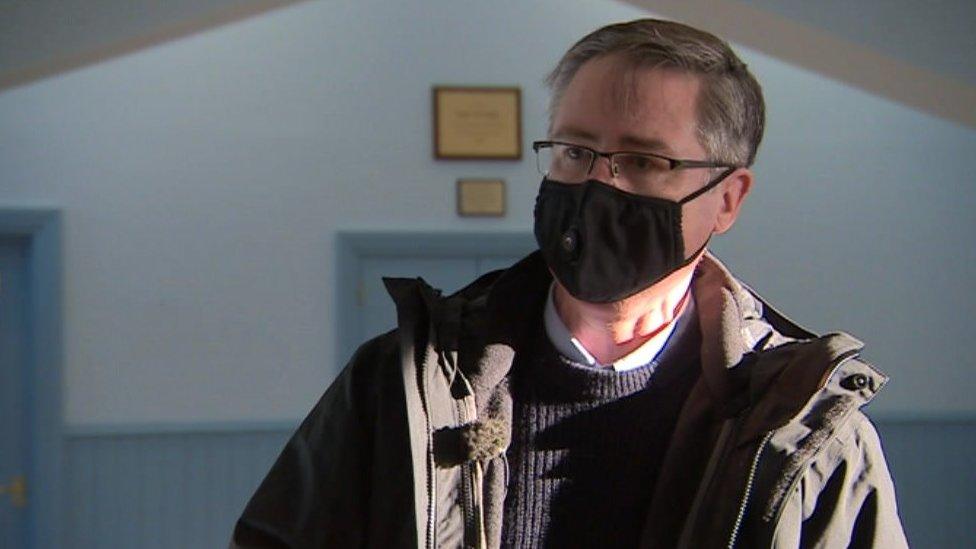
Martin Smith is chairman of Craster Parish Council
To that end, the parish council is making moves to ensure if future storms strike, villagers have somewhere warm, lit and connected to go.
Their aim is to have a back-up supply at the parish hall to act as a "warm hub", following the example of a number of village halls and community centres across the region during Storm Arwen.
They have been loaned a generator by Northern Powergrid for the immediate future, but that is not seen as a long-term solution.
"The generator requires maintenance and the fuel has to be stored somewhere and kept fresh," Martin says.
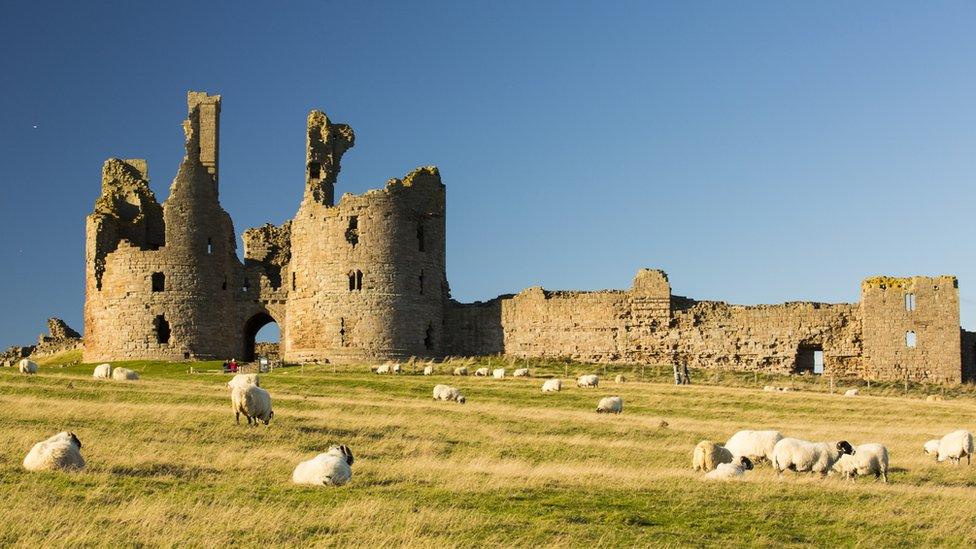
The ruins of Dunstanburgh Castle lie a short walk up the coast from the village of Craster
The council hopes to fund some battery-powered generators that would require minimal maintenance and come on automatically during a loss of power.
Martin says: "We want a warm hub with wi-fi where people can come, be comfortable and make contact with others."
Ultimately though, a national response is needed to improve the resilience of the power network, Martin says.
"We can do what we can for the village but this is a much bigger issue and has to be done on a government level.
"Just because we live in a rural area that does not mean we do not deserve the same level of service as everywhere else."
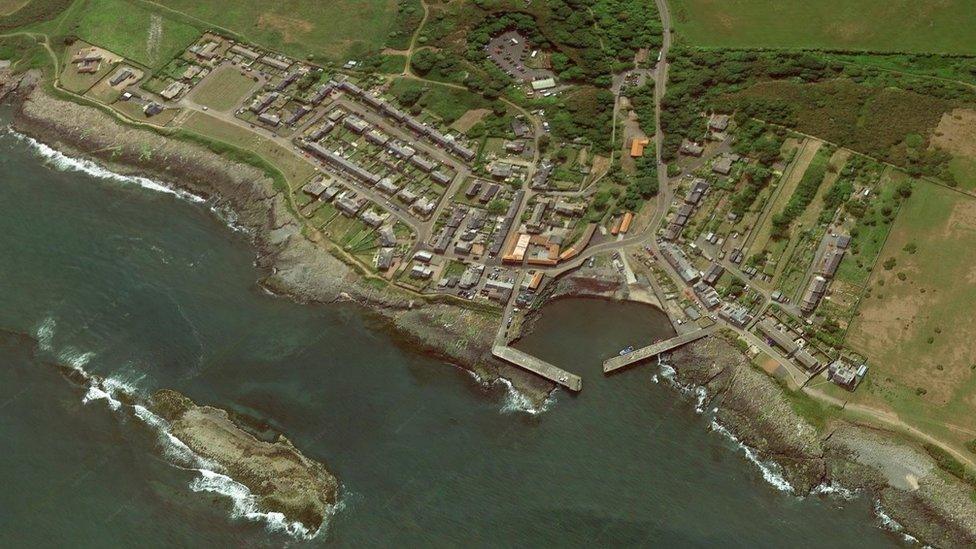
Craster has about 250 permanent residents
Northern Powergrid, which distributes power in the North East, said it is making plans for "future resilience" and has vowed to spend £11.2m a year on "vegetation management" between 2023 and 2028, an annual increase of £1.9m.
This will include improved maintenance of "clearance corridors" between trees and power lines as well as keeping substations and towers free of greenery.
According to the energy company's business plan, it will also prepare for future storms by "strengthening overhead line networks".
For Martin, and Craster as a whole, the aim is to have a place where the lights and heat will be on swiftly.
"When you lose the power, the thing you miss the most is a hot drink and a shower," he says.
"We can't offer a shower but we can certainly offer a hot drink."

Follow BBC North East & Cumbria on Twitter, external, Facebook, external and Instagram, external. Send your story ideas to northeastandcumbria@bbc.co.uk, external.
Related topics
- Published17 February 2022
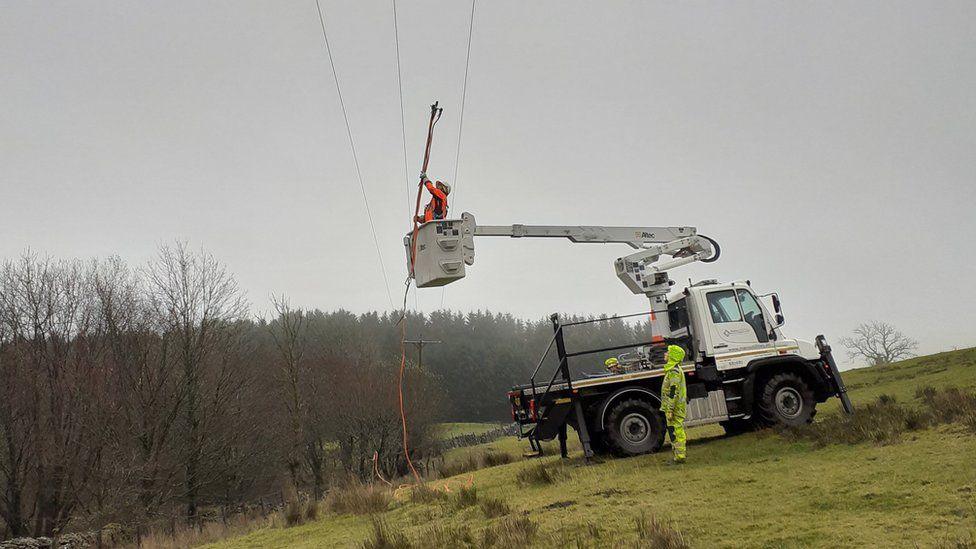
- Published13 February 2022

- Published29 November 2021
